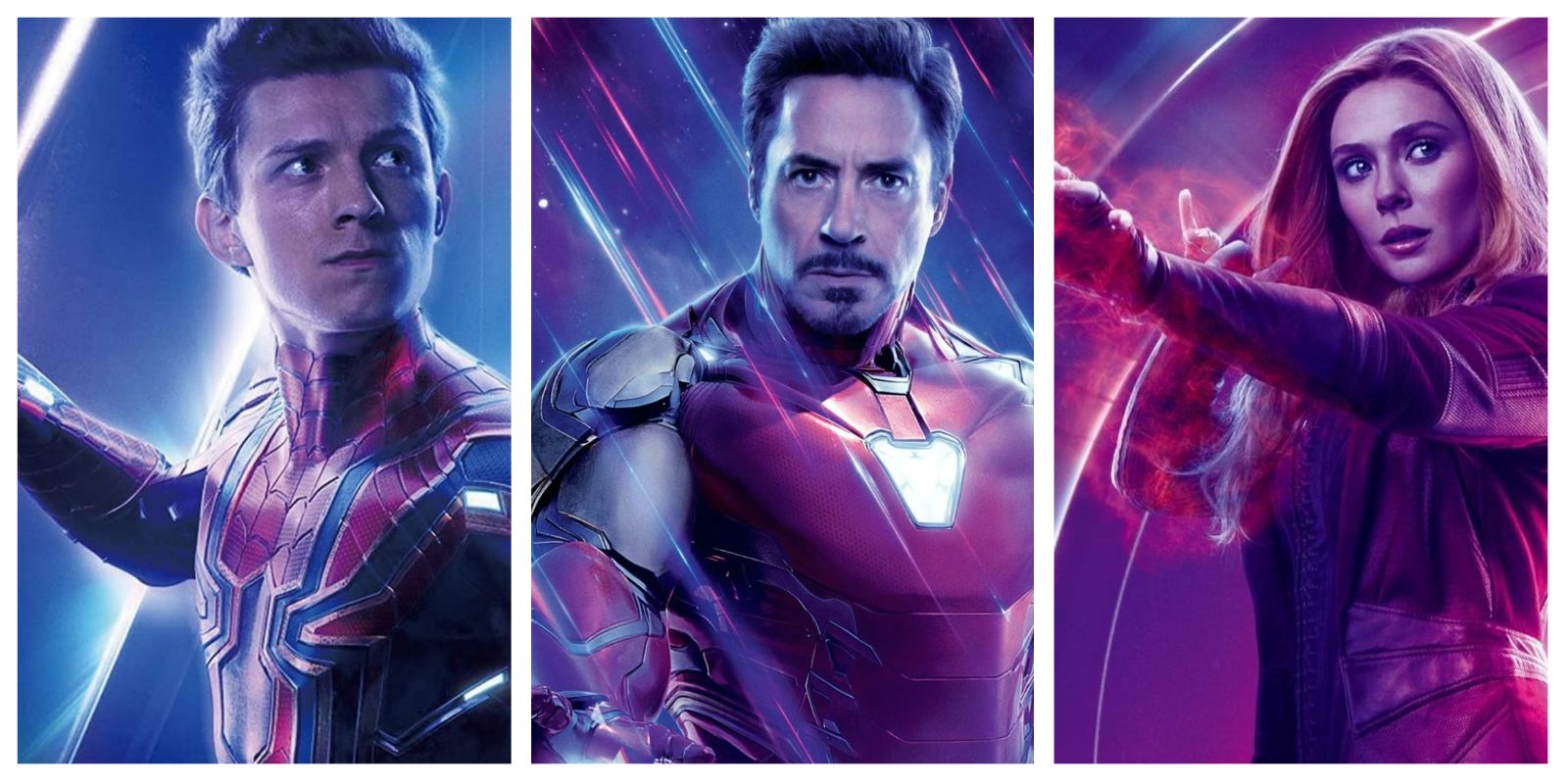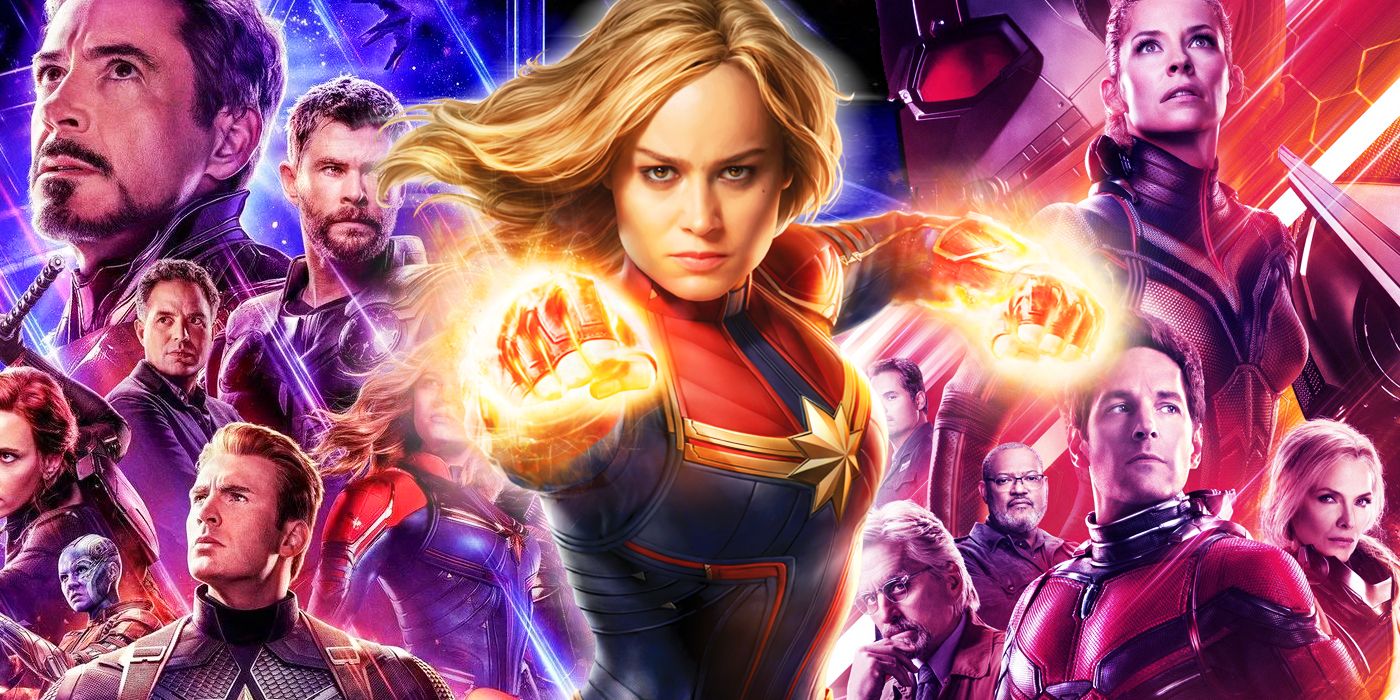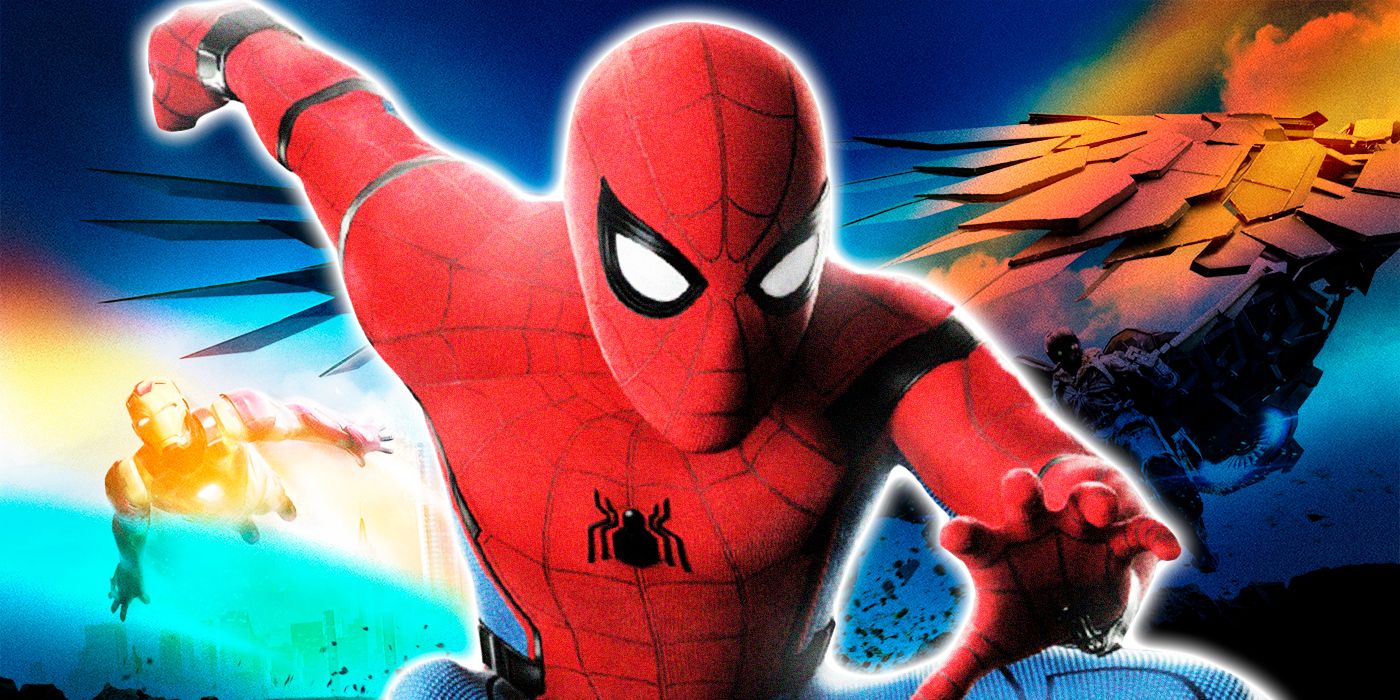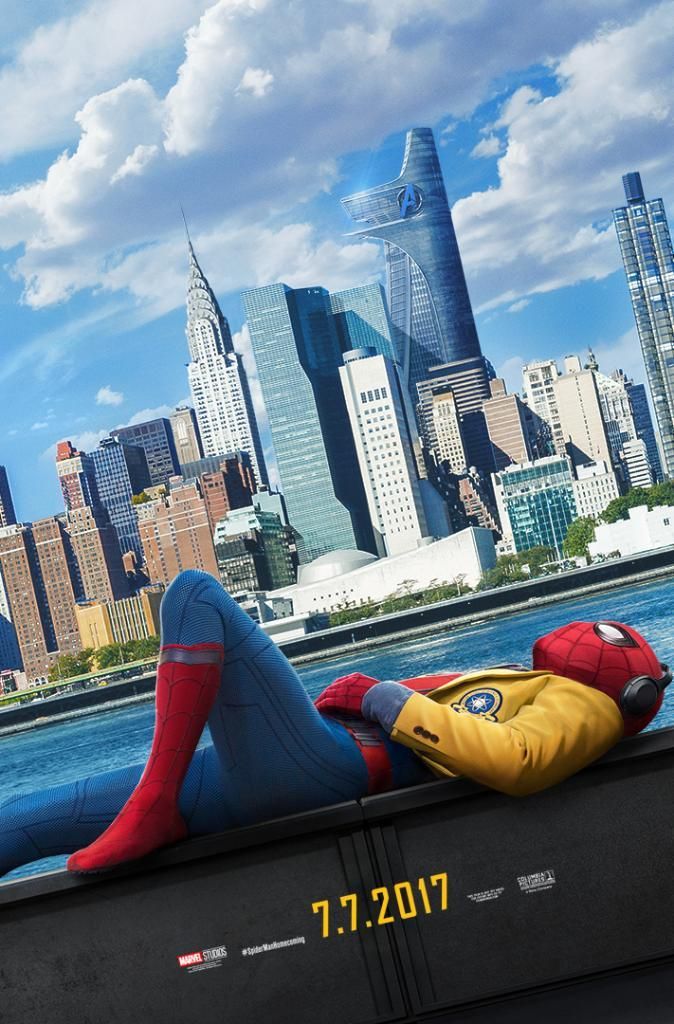This summer, Spider-Man: Homecoming gets a proper homecoming in London’s West End, as Tom Holland takes on William Shakespeare. Retracing the roots that made him famous in theaters via Billy Elliot, Marvel’s most bankable asset takes to the stage to become a Montague for the newest take on Romeo and Juliet. Back on home ground rather than racking up billions at the box office, it marks a moment of quiet reflection for an actor who successfully carved his own niche in popular culture by embodying Peter Parker.
But in 2016, when Holland debuted as the wall-crawler in Captain America: Civil War, the MCU rolled the dice on Spider-Man's third recast. It may be hard to remember now, but Holland wasn't a sure bet back then. To say that there was a lot riding on his extended cameo in Iron Man's pro-Sokovia Accords team-up is an understatement. With some minor voice work in Locke, a supporting role opposite Naomi Watts in The Impossible and some time adrift with Chris Hemsworth for In the Heart of the Sea, Holland was under the radar before he entered the MCU. Sony owned the rights to Spider-Man, and a reboot featuring Andrew Garfield was still fresh in fans' memory.
However, serendipity sometimes plays a huge part in casting key roles, and Holland slotted into Spider-Man seamlessly. He made his mark with limited screentime, and set up audiences for his own feature-length MCU introduction. The question is, after two sequels and a fourth movie in the works, does Spider-Man: Homecoming, the first solo Spider-Man film in nearly 10 years of MCU projects, still measure up?
Spider-Man: Homecoming Has More Than Just Tom Holland Going for It
Casting Is Key in Spider-Man's Impressive MCU Debut

10 Best MCU Debut Performances
While MCU actors have a huge fanbase to please, many debut performances in the superhero franchise amazed fans.Falling between Guardians of the Galaxy Volume 2 and Thor: Ragnarök, Spider-Man: Homecoming is an intelligent introduction to a key MCU character. The five writers who worked on this installment, including director Jon Watts (Star Wars: Skeleton Crew), moved their focus away from a typical origin story. Instead, they gave audiences a front row seat to the aftermath of the fight between feuding Avengers in Captain America: Civil War, as seen through Peter's eyes. Using a combination of social media, smartphone footage and Holland's natural charisma, the movie's prologue proved to be the perfect entry for audiences to get to know the MCU's Spider-Man.
Spider-Man: Homecoming also benefited from having a grounded villain in Adrian Toomes (Michael Keaton). Unlike most MCU villains who abused the power they were born with, Toomes was stripped of his livelihood and forced to adapt or die in the aftermath of The Avengers' battle for New York City. By offsetting the more fantastical elements like reverse-engineered technology with something as relatable as concerns about class inequality, this movie really drilled down on character creation and moved away from a reliance on the usual comic book tropes. In casting the Avengers as untouchable and partially responsible for Toomes’ situation, the movie intelligently gave the Vulture motive without turning him into a pantomime villain. Keaton's casting paid off handsomely whenever he and Holland duked it out onscreen, whether they were in costume or not. The scene where Toomes confronted Peter in his car during prom night stood out the most.
Similarly, the casting of Zendaya as Mary Jane was just as crucial, even though she got almost no screentime here and only made the subtlest of an impression on viewers. She had very few moments to test her chemistry with Holland in this movie, yet the decision to let their relationship develop gradually over three movies was a smart move. This easy chemistry also applied to Peter's best friend, Ned (Jacob Batalon), who stole every scene he was in. Whether he was Peter’s wingman at parties or his Guy in the Chair, Batalon and Holland kept it light and displayed a genuine knack for comic timing.
Last but not least, Happy Hogan (Jon Favreau) and Peter reveal a different side to Marvel, as Happy becomes the first of two father figures who help shape the web-slinger. This was the first time that an MCU hero took on the role of an adoptive parent. The fact that Peter had two father figures from the movie that started it all (namely Iron Man) was really special. His dynamic with Happy was defined by exasperation and paternal concern that softened any hard edges, grounded Favreau’s performance, and gave this film genuine emotional honesty.
Spider-Man: Homecoming Was a Lightning-In-A-Bottle Moment for the MCU
Spider-Man: Homecoming Was One of the Already Impressive MCU Phase 3’s Best Movies

Every Marvel Cinematic Universe Phase 3 Movie Ranked, According to Critics
The Marvel Cinematic Universe's Phase 3 was full of heavy-hitter films, so let's rank them based on their Rotten Tomatoes and Metacritic scores.Spider-Man: Homecoming represents a golden age of storytelling in the MCU. Sitting alongside the underrated Doctor Strange and a culturally-charged cinematic touchstone in Black Panther, Phase 3 may truly be the MCU's peak. Coupled with the Guardians' emotionally left field sequel and Thor's comedic reboot in Thor: Ragnarök, Spider-Man's proper MCU introduction sits in some good company. Even the much maligned Captain Marvel, which starred an excellent Brie Larson as Carol Danvers and a perfectly passable Jude Law as the villain Yon-Rogg, added color, if not substance, to this era.
In retrospect, Phase 3 really was a time of re-invention for the MCU, where it cemented its reputation for pitch perfect casting and tentpole spectacle. Spider-Man: Homecoming struck the perfect balance between these two ideals, since audiences got an actor who was the right age for this iconic role. Irrespective of the impressive agility of both Tobey Maguire from Sam Raimi's Spider-Man trilogy and Garfield from The Amazing Spider-Man duology, it was impossible to avoid the fact that they were closer to middle-age than teenage adolescence.
Holland, on the other hand, was 19-years-old when he landed Captain America: Civil War, and barely into his 20s when Spider-Man: Homecoming hit big screens. Being able to play teenage angst and hormonal confusion with conviction went a long way in making Holland's version of Peter work. His natural aptitude for athletics also made it possible for many of the physical stunts and acrobatics to happen on-camera, adding further to the movie's authenticity and exhilarating energy.
Having a seasoned veteran like Keaton as Spider-Man's first arch-nemesis also gave the film a degree of gravitas, especially since the actor was still hot off an impressive streak that included The Founder, Spotlight and Birdman or (The Unexpected Virtue of Ignorance). As Toomes, Keaton brought his trademark intensity along with some ex-Batman baggage that gave Spider-Man: Homecoming a built-in fanbase. On this occasion, Keton portraying a comic book character after so long worked because there was a relatable humanity beneath the carnage he caused. The same trick fell flat a few years later in The Flash, when a combination of conflicting factors saw Keaton's return as Batman from Tim Burton's beloved 1989 movie sink without trace. The MCU always had great casting, but Keaton as Vulture was truly inspired.
Then there was the presence of none other than Robert Downey Jr., the MCU's godfather. He was a solid gold movie star who inhabited Tony Stark Jr. from the beginning and arguably the one who made the entire MCU possible. Without him or Iron Man, Spider-Man: Homecoming may not even exist. There is an effortless charm about Downey's performance in this role that never gets old. More of a surrogate father to Peter than Happy Hogan, Tony is the ideal role model for this young Avenger in waiting.
Not only did this relationship feel grounded despite the heightened circumstances that come with superhero storytelling, but it expanded on the rites of passage that Spider-Man: Homecoming represents. In the absence of an Uncle Ben narrative, there needed to be a subtext that reflects the classic line "With great power comes great responsibility." The dynamic between Peter and Tony fulfilled this thematic resonance perfectly.
Spider-Man: Homecoming Sticks the Landing & Aged Beautifully
Spider-Man: Homecoming Boasted Some of the MCU's Strongest Social Commentary Yet

Everything Spider-Man: Homecoming Did Right
Spider-Man: Homecoming officially started Peter Parker's solo journey in the MCU. But from villains to allies, the movie did a lot right.There is no doubt that Spider-Man: Homecoming measures up and sticks the landing when it comes to re-invention. Holland's casting was crucial to the movie's success, and his naturalistic performance went a long way in making this work on multiple levels. His Peter is a wide-eyed and innocent kid who is half fanboy and half wannabe superhero. Grounded by Marisa Tomei as an excellent Aunt May, Holland's take on Peter also succeeds because director Tom Watts retains the superhero's humanity that made him such a beloved icon to begin with.
At the heart of Spider-Man: Homecoming is a man trying to protect his legacy. Toomes saw the Avengers as a threat to his family and their well-being, since government oversight took away opportunities to earn a living from working-class people like himself and his salvage crew. His struggles threw shade on real-world problems in America, where ever-worsening income disparity keeps wealth one-sided. More interestingly, Toomes could also be read as a deconstruction of the American Dream's inherent greed and hyper-individualism. He crossed many lines and endangered people's lives to hoard more wealth, all the while justifying himself with self-aggrandizing screeds. Peter faced the same temptation with his similarly working-class upbringing plus his newfound powers and access to Stark's wealth, but chose to do good and help others instead.
This ethical dilemma was just one of many reasons why audiences should re-visit Spider-Man: Homecoming today, and why it only gets better with time. It proved that Marvel was as much about social commentary as it is about comic book fandom and history. Not only is Holland’s introduction into the MCU a well-crafted film aimed squarely at fans, but it also hides some not-so subtle saber-rattling from Marvel on important social issues.
Spider-Man: Homecoming is now available to own physically and digitally. The movie will return to theaters for a limited run on May 20, 2024.

Spider-Man: Homecoming
- Tom Holland fits the role like a glove
- Michael Keaton is a piece of inspired casting
- Robert Downey Jr ties the room together
- This is a superhero story intelligently told
- It has to end

